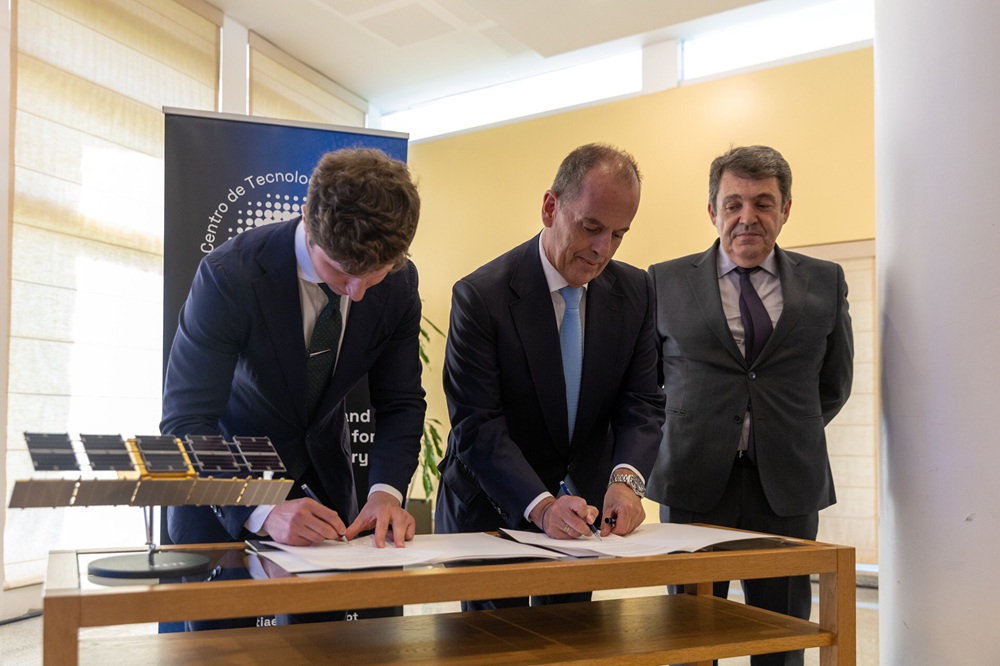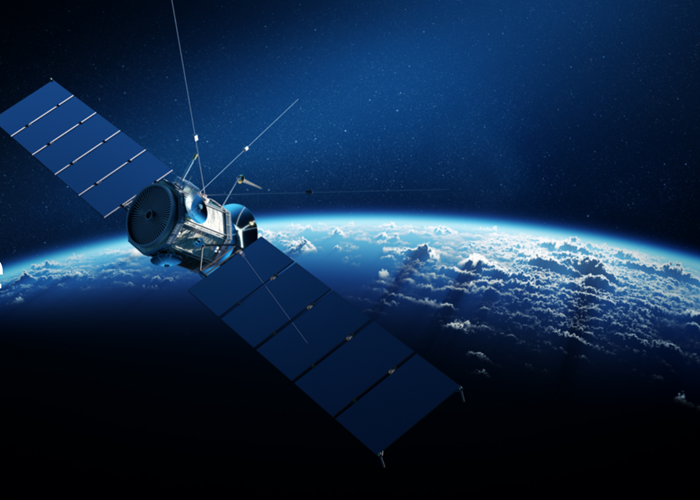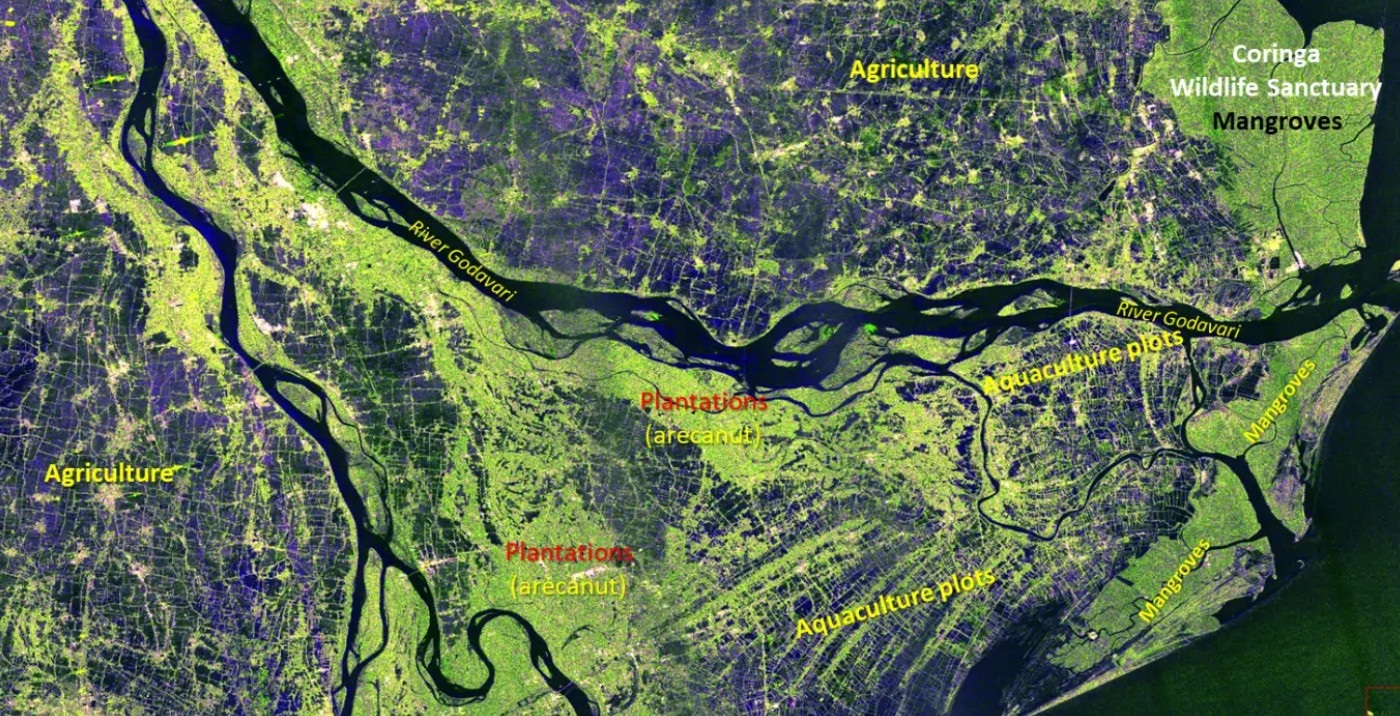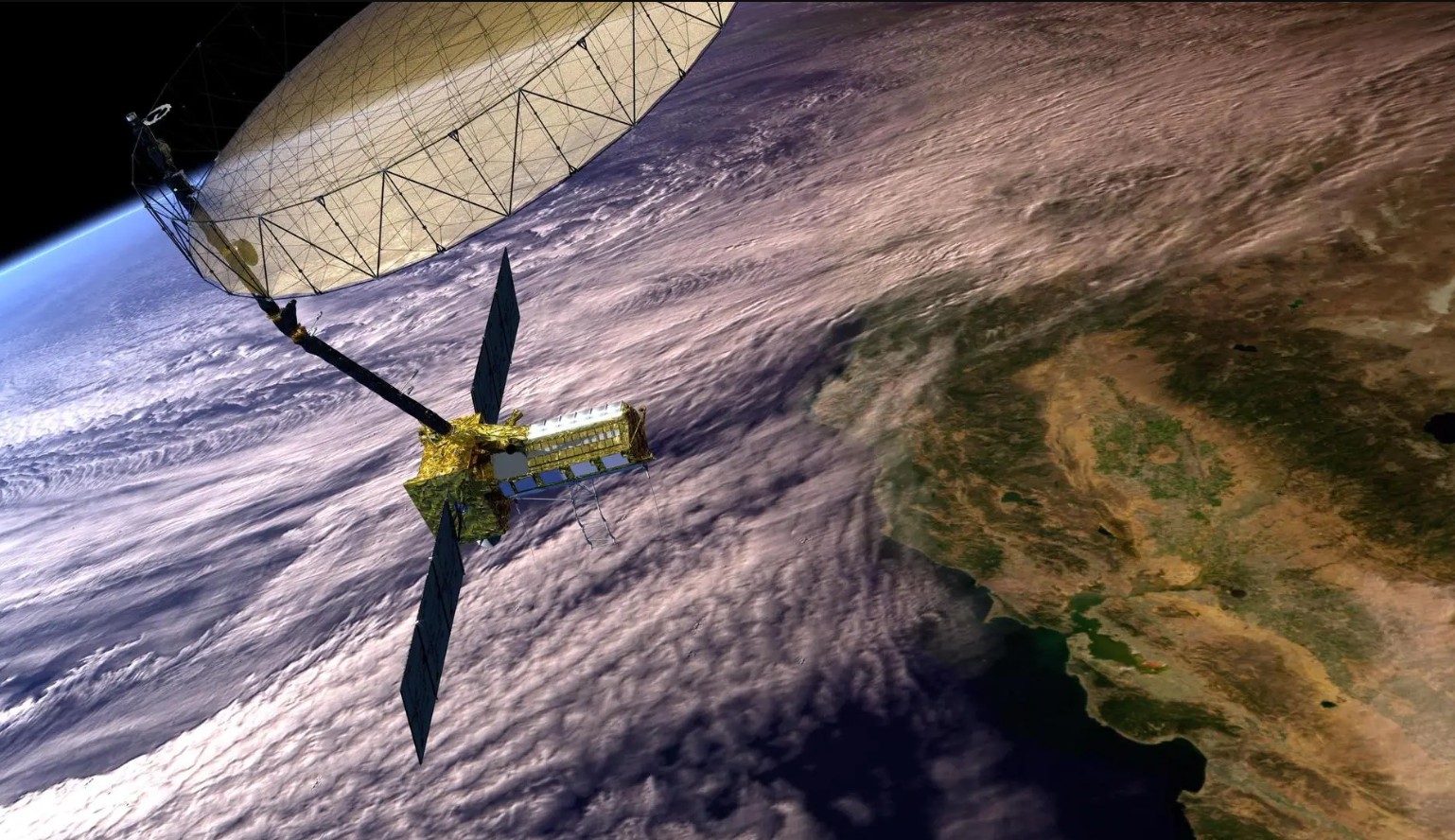Lisbon: ICEYE, a global frontrunner in synthetic aperture radar (SAR) satellite technology, and the Portuguese Air Force have formalized a landmark agreement to acquire a state-of-the-art SAR satellite, along with a ground segment and antenna system.
The signing ceremony, held on June 12 in Lisbon, marks a significant advancement in Portugal’s national space and defense strategy, underscoring the country’s commitment to enhancing its sovereign space capabilities and operational readiness.
The satellite and associated infrastructure will be delivered to CTI Aerospacial, a joint venture between the Portuguese Air Force and CEiiA, a key local engineering and innovation center. This collaboration is part of a broader vision to develop Portugal’s aerospace industry and strengthen its role within European space initiatives. Discussions are already underway for the potential acquisition of additional satellites, signaling a long-term partnership between ICEYE and Portuguese defense entities.
This newly acquired SAR satellite will contribute to the Portuguese segment of the Atlantic Constellation, a collaborative project primarily driven by Spain and Portugal. The constellation aims to deploy a network of small Earth observation satellites designed to deliver high-frequency data for environmental monitoring and disaster relief operations. This initiative complements existing European systems such as Copernicus, enhancing regional capabilities for rapid response and situational awareness.
In parallel, ICEYE and CTI Aerospacial have signed a memorandum of understanding to establish a satellite assembly facility in Portugal. This facility will serve as a cornerstone for Portugal’s 2030 Space Strategy, fostering domestic manufacturing and technological innovation in the space sector. The agreement highlights Portugal’s ambition to become a key player in the European space ecosystem by developing indigenous capabilities in satellite assembly and integration.
Rafal Modrzewski, CEO and Co-founder of ICEYE, expressed pride in the collaboration, stating, “We are very proud to collaborate with Portugal in strengthening Europe’s defense and disaster relief capabilities. This partnership underscores our commitment to providing critical ISR infrastructure and advancing sovereign space technologies within the region.” He emphasized ICEYE’s role in delivering rapid, sovereign intelligence, surveillance, and reconnaissance (ISR) solutions to its partners.
General João Cartaxo Alves, Chief of Staff of the Portuguese Air Force, highlighted the strategic importance of this acquisition within the framework of the Air Force’s modernization plan, “Air Force 5.3.” He explained that the plan focuses on integrating the fifth operational domain — space — alongside traditional air and cyber domains. “The Air Force is changing, in accordance with a Flight Plan described as ‘Air Force 5.3’ focused on 5th Generation and the 5th Operational Domain – Space,” he said. Alves stressed that Portugal’s security and defense success depends on integrated action across multiple domains, including space, to provide situational awareness and control over national interests.
ICEYE has rapidly established itself as the world’s largest operator of SAR satellites, with 48 satellites launched since 2018. The company’s constellation offers unparalleled capabilities for persistent Earth observation, able to capture images day and night, through clouds, smoke, and adverse weather conditions. This enables near real-time monitoring and change detection with resolutions as fine as 50 centimeters, delivering actionable intelligence for defense, disaster response, maritime monitoring, and environmental applications.
The company plans to maintain an aggressive launch schedule, targeting over 20 new satellites annually through 2025 and 2026, further expanding its constellation and enhancing data availability for customers worldwide. ICEYE’s technology is European, sovereign, and non-ITAR restricted, allowing for rapid deployment of ISR capabilities to governments and commercial clients without export control complications.
Portugal’s commitment to space technology is framed within its comprehensive Portugal Space 2030 strategy, which aims to boost national capabilities through investment, innovation, and international cooperation. The strategy includes fostering industrial partnerships, developing satellite platforms, and enhancing ground segment infrastructure. Key projects under this umbrella involve collaboration with entities such as ESA and integration with European funding mechanisms to accelerate growth in the space sector.
The establishment of a satellite assembly facility in Portugal aligns with these goals, enabling the country to build sovereign capabilities in satellite manufacturing and integration. This initiative is expected to generate skilled employment, promote research and development, and position Portugal as a reliable partner in European space programs.
The ICEYE-Portuguese Air Force agreement represents a significant moment in Portugal’s space and defense trajectory. By acquiring advanced SAR satellite technology and committing to long-term collaboration in satellite assembly and integration, Portugal is enhancing its ability to monitor environmental changes, support disaster relief, and secure national interests in space. This partnership not only strengthens Portugal’s defense posture but also contributes to Europe’s broader strategic autonomy in space-based intelligence and surveillance capabilities.
This strategic collaboration between ICEYE and the Portuguese Air Force exemplifies the growing importance of space as a critical operational domain and highlights Portugal’s emergence as a key player in the European space landscape. With ICEYE’s cutting-edge SAR technology and Portugal’s ambitious space strategy, the partnership promises to deliver significant advancements in defense, environmental monitoring, and technological innovation over the coming decade.





